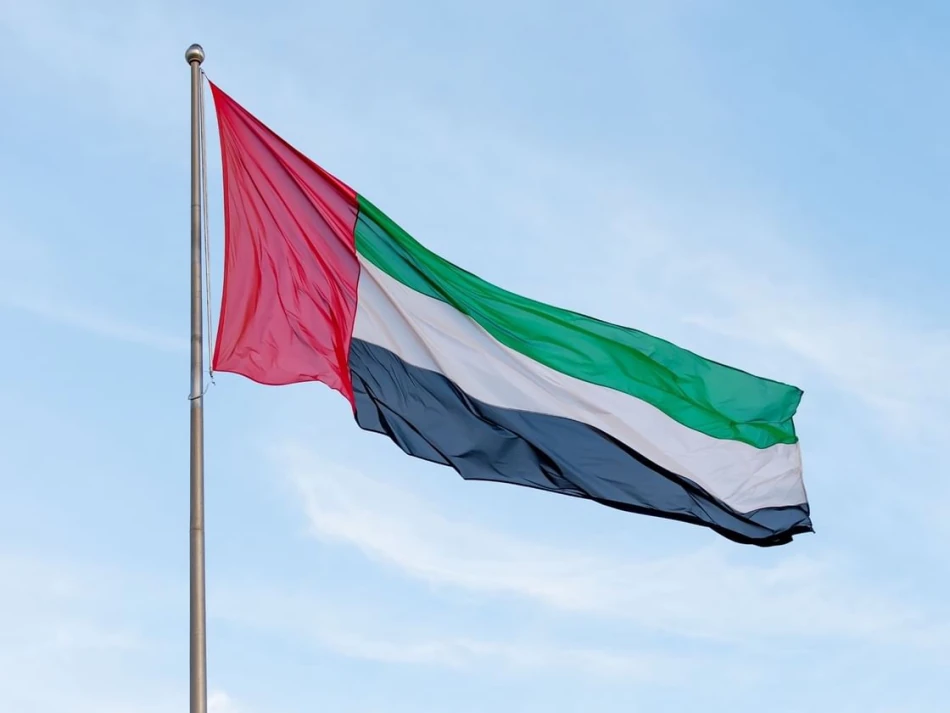
UAE Welcomes Alaska Summit Hosted by President Trump
UAE Backs Diplomatic Engagement as Trump-Putin Alaska Summit Signals New Peace Initiative
The United Arab Emirates has thrown its diplomatic weight behind a high-stakes summit between US President Donald Trump and Russian President Vladimir Putin held in Alaska, viewing the meeting as a pivotal moment for international security and a potential breakthrough in resolving the Ukraine crisis. The UAE's endorsement reflects the Gulf nation's growing role as a mediator in global conflicts and its strategic interest in regional stability.
Strategic Diplomacy Takes Center Stage
The UAE Ministry of Foreign Affairs praised what it described as a "historic meeting," emphasizing that constructive dialogue remains the optimal path for bridging differences and settling disputes. This endorsement comes at a critical juncture when traditional diplomatic channels between major powers have been strained by ongoing geopolitical tensions.
The choice of Alaska as a neutral venue echoes historical precedent, reminiscent of the 1986 Reykjavik Summit between Reagan and Gorbachev, which helped pave the way for arms control agreements despite initial disagreements. The remote location suggests both leaders sought to minimize external pressures and media scrutiny while focusing on substantive negotiations.
Ukraine Crisis: A Test Case for Great Power Cooperation
Economic Implications Beyond Borders
The joint efforts by both presidents to address the Ukraine crisis carry significant implications for global markets and energy security. Ukraine's strategic position as a transit route for European energy supplies means any resolution could stabilize commodity prices and reduce inflationary pressures that have plagued global markets.
For investors, a successful de-escalation could trigger a risk-on sentiment, potentially boosting European equities while reducing safe-haven demand for gold and US Treasury bonds. Energy markets, in particular, remain sensitive to any signals of reduced geopolitical risk in the region.
Regional Stability Framework
The UAE's support for this diplomatic initiative aligns with its broader foreign policy strategy of promoting dialogue over confrontation. This approach has served the Emirates well in previous conflicts, including its mediation efforts in the Horn of Africa and its pragmatic engagement with Iran despite regional tensions.
Broader Geopolitical Calculations
The timing of this summit reflects shifting global dynamics where middle powers like the UAE increasingly play influential roles in international diplomacy. Unlike the rigid bloc politics of the Cold War era, today's multipolar world allows smaller nations to pursue independent foreign policies that prioritize stability and economic interests.
The UAE's endorsement also signals to other Gulf states and regional partners that engagement with all major powers—including Russia—serves their collective interests better than alignment with any single bloc. This pragmatic approach has enabled the Emirates to maintain strong ties with both Washington and Moscow while expanding its influence across multiple theaters.
Market and Investment Outlook
Should the Alaska summit yield concrete results, particularly regarding Ukraine, several sectors could benefit significantly. European defense contractors might see reduced demand for military equipment, while infrastructure and reconstruction companies could gain from potential post-conflict rebuilding efforts.
The UAE itself stands to benefit from reduced global tensions, as stability typically enhances its position as a regional business hub and safe haven for international investment. The Emirates' diverse economy, spanning finance, logistics, and technology, thrives in environments of predictable geopolitical risk.
For currency markets, successful diplomacy could strengthen the euro against the dollar while reducing volatility in emerging market currencies that have suffered from risk-off sentiment during periods of heightened US-Russia tensions.
Most Viewed News

 Sara Khaled
Sara Khaled






